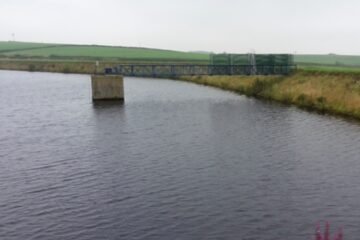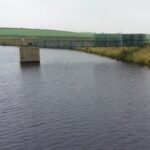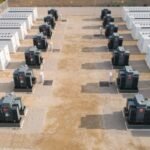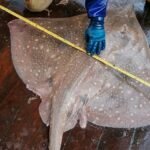How smoke from fireworks and bonfires can trigger asthma attacks and COPD symptoms
People with asthma or chronic obstructive pulmonary disease (COPD) are advised to take extra precautions during Bonfire Night celebrations, as smoke from fireworks and bonfires can worsen their condition and cause potentially life-threatening breathing difficulties.
Asthma + Lung UK, a charity that supports people with lung conditions, says that smoke can stay in the air for a long time and create areas of air pollution that can trigger asthma attacks or symptoms such as coughing, wheezing and breathlessness.
The charity also warns that cold air and viruses, which are more common in winter months, can also aggravate lung conditions and make people more susceptible to infections.
Eve’s story: ‘I am housebound every November after an asthma attack triggered by smoke 15 years ago’
One woman who knows the dangers of smoke is Eve, 65, from East Kilbride, who has been living with asthma for 30 years. She says that she has been unable to leave the house after November 5 for 15 years, after having an asthma attack triggered by bonfire smoke.
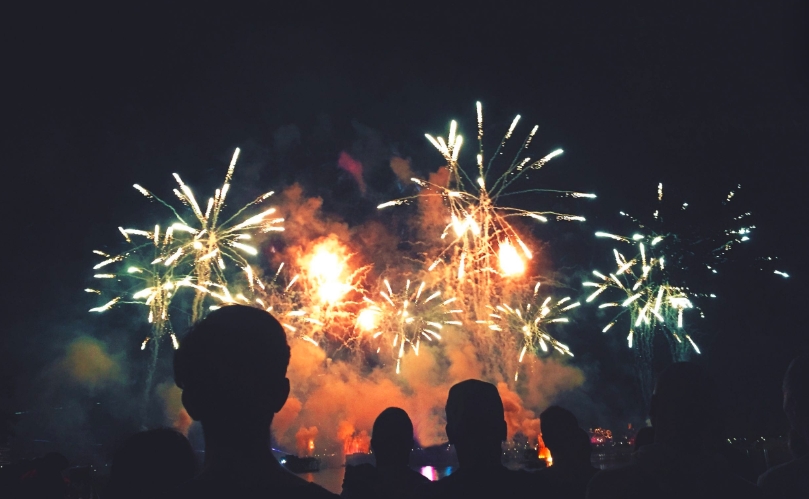
She says: “For a good few days before November 5, and for a while after too, I am housebound, with the windows sealed and the outside doors shut.
“A few years ago, I made the mistake of leaving the house one smoky bonfire night.
“The smoke triggered an asthma attack, I was coughing so much, I couldn’t even call for help. I just couldn’t get it under control, my chest was tight, and I was struggling to breathe.
“Luckily, I had my inhaler with me, and this helped bring my symptoms under control, but it was very frightening none the less and it took me a while to recover.
“I just stay indoors and don’t leave the house at all at the beginning of November and wait for Bonfire Night to be over. It’s just not worth the risk.”
How many people are affected by lung conditions in Scotland and the UK?
According to Asthma + Lung UK, over half of people with lung conditions surveyed in Scotland said that poor air quality triggers their condition. The charity also found that three in four people with COPD said that cold air worsens their symptoms.
Asthma and COPD are two of the most common lung conditions in the UK, affecting millions of people.
Asthma is a condition that causes the airways to become inflamed and narrow, making it hard to breathe. It affects about 5.4 million people in the UK, including 368,000 in Scotland.
COPD is an umbrella term for a group of lung conditions that cause breathing difficulties, such as emphysema and chronic bronchitis. It affects about 1.2 million people in the UK, including 140,000 in Scotland.
Both conditions can be managed with medication and lifestyle changes, but they can also lead to serious complications and hospital admissions if not well controlled.
What are the official figures for hospital admissions due to asthma and COPD?
The most recent official figures show that almost 7,487 people in the UK were admitted to hospital for emergency care in 2021/22 for their asthma symptoms, with 562 in November 2021 in Scotland.
The charity says that the number of asthma admissions and increase in calls for advice at this time of year are likely due to a combination of cold weather, more viruses and bugs going around, and air pollution, such as bonfire smoke.
For COPD, the figures show that there were 113,037 hospital admissions in the UK in 2020/21, with 9,608 in Scotland. The charity says that COPD admissions tend to peak in winter months, as cold air and infections can trigger flare-ups.
What are the tips and advice from Asthma + Lung UK for people with lung conditions on Bonfire Night?
Joseph Carter, Head of Asthma and Lung UK Scotland, says that fireworks and bonfires can be a great source of fun and entertainment, but they can also pose a danger for people with lung conditions.
He says: “Smoke from bonfires and fireworks can stay in the air for quite a long time, creating areas of air pollution that can trigger asthma attacks or symptoms such as coughing, wheezing and breathlessness.
“We would caution people who find smoke is a trigger to stay indoors on November 5 if possible.
“For those planning to go to a bonfire event, we would advise people to stand well back from the fire, have their reliever inhaler with them and let family and friends know what to do if you do have an asthma attack.
“Remember too that you should always seek emergency medical attention if you have an asthma attack.”
The charity also offers the following advice for people with lung conditions on Bonfire Night:
- If you find that smoke is making you cough, stand well back from the fire
- Make sure your friends and family know what to do and when to get medical help if your asthma symptoms suddenly get worse.
- As cold air can be an asthma trigger, wrap a thin scarf loosely over your nose and mouth to warm the air before you breathe it in
- Asthma + Lung UK has an advice page for those who need information on how to look after themselves on Bonfire Night at: Asthma and fireworks | Asthma + Lung UK


